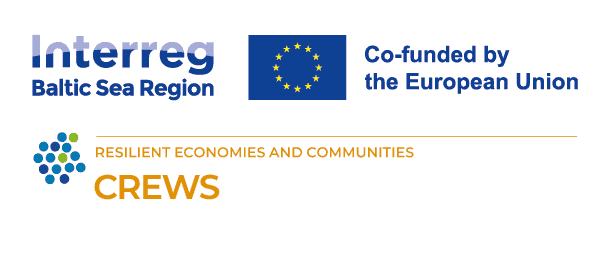
CREWS Meets BSR NOVA: Coordinating Approaches to Societal Resilience
13 November 2025
On 10 November 2025, a CREWS workshop held during the meeting of the Baltic Sea Region Network of Volunteer Organisations and Authorities (BSR-NOVA) focused on how authorities and civil society can organise cooperation to strengthen societal resilience — a central aim for both initiatives.
BSR-NOVA, which connects volunteer organisations and civil protection authorities across the region, provided an online setting for practitioners, researchers and international organisations to assess practical needs and challenges in public-civil cooperation.
The exchanges highlighted how resilience can be strengthened when trusted local networks, clear responsibilities and community-based approaches align with the work of public authorities.
Speakers included Harri Ruoslahti (Laurea University), Maja Allard (Region Gotland), and Monika Pochron-Frankowska and Anna Ochmanska (International Organization for Migration, Warsaw).
Key priorities for an effective cooperation model emerged: realistic roles, clear and usable guidance for crisis conditions, and tools that support rapid and transparent coordination of volunteers as well as crisis prevention and response efforts.
The role of spontaneous volunteers proved particularly important, with an emphasis on basic preparation, clear expectations and flexible structures to enable safe and effective involvement.
Suggestions for the CREWS model included adaptable checklists, templates and communication guidelines to reflect the diversity of volunteer groups and crisis contexts. Funded by the Interreg Baltic Sea Region programme, CREWS will develop a cooperation model to link civil protection authorities and volunteer actors across the region.





